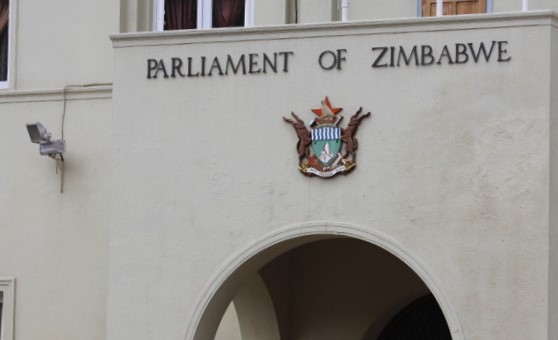The Portfolio Committee on Defence, Home Affairs and Security Services said the concerns raised by former ZPRA fighters on the omissions of their submissions during the crafting of the Veterans of the Liberation Struggle Act would have to be included.
This possibly means the Act may be amended.
Ex-ZPRA cadres had accused the government of deliberately omitting some of their contributions to the Act after they discovered a lot of missing gaps in the final document.
The Veterans of the Liberation Struggle Act was signed into law by President Emmerson Mnangagwa in September, which prompted the former freedom fighters to petition parliament to amend the Act.
Parliament responded to the petition and invited the ex-ZPRA veterans to appear before the Portfolio Committee on Defence, Home Affairs and Security Services Monday.
In an interview with CITE after their appearance before the committee, ZPRA Veterans Association, Secretary-General, Petros Sibanda said their two main concerns on the definition of non-combatant cadres and exclusion of other countries as transit camps were accepted.
“According to the chairperson of the parliamentary portfolio, the two interpretations we wanted to be clarified, had to be rectified. The house agreed the two issues we raised would have to be considered. The issues are going to be taken to the relevant processes so there will be an amendment,” he said.
“The chairperson mentioned there are processes towards an amendment but as the committee they were convinced the anomalies had to be rectified and processes towards an amendment are going to be done. We also raised other issues and we were told there is going to be addendum to the petition, which they are also going to consider.”
ZPRA Veterans Association Spokesperson, Buster Magwizi, added they had also argued that the 16 year age limit of those who participated in the war should be scrapped.
“During the war, some who are said to be non-combatants and participated in the liberation struggle as war collaborators were lot younger because they were herding cattle and they would be asked by the freedom fighters to go check on the Rhodesian dispositions and they came up with information that benefitted the war,” he said.
“But under the act they would have been restricted to 16 years, how about those who participated when they were 11 years old. I am not suggesting we employed or trained 11 year olds but we asked them to check on Rhodesian forces.”
Magwizi said they took the opportunity to raise other anormalies contained in the law.
“Some of these include who is to benefit and whether benefits are only given to living cadres or the dead or all. The other issue is the term limit for the war veterans boards established under Section 3 of the Act. This term should be five years, however there’s conflict of terms between the chief director and chairperson and their job descriptions are not very clear,” he said.
“Another concern is who is a dependent and how are they classified. There’s a concern on the period of detainees -the act said a detainee was one who spent six months in prison but some detainees spent 30 days in and yet all would have been victimised to become cabbages for the rest of their lives.
Other issues discussed were the definitions of non-combatants and war collaborators, which Magwizi said was not the same.
“Compensation should be given to war vets and collaborators but it should not be the same, so the issue of compensation should mirror what role each played in the liberation struggle. We have generals who probably found their way into assembly points in 1980 but today are commanders in the army and are going to benefit unscrupulously because of the corrupt manner in which they brought in the army,” he said.
The former fighters also questioned the minister’s decision, which was to be final on any appeal as per the Act.
“For example, we are querying the appointment of some senior members of the government like the deputy minister of defence, we won’t mention his name but people have made submissions that he is not genuine. If such is left to the minister, some people will then unscrupulously benefit unnecessarily at the expense of others,” he said referring to Victor Matemadanda.
“We also wanted clarity on grants and allowances because we need grants in line with the country’s poverty datum line. Educational benefits must be granted to spouses of veterans to continue learning. We need duty exemptions in order to purchase outside the country just like ministers do. All veterans including non combatant, restrictees, collaborators must benefit from gratuity backdated to 1997 and this is a demand.”

